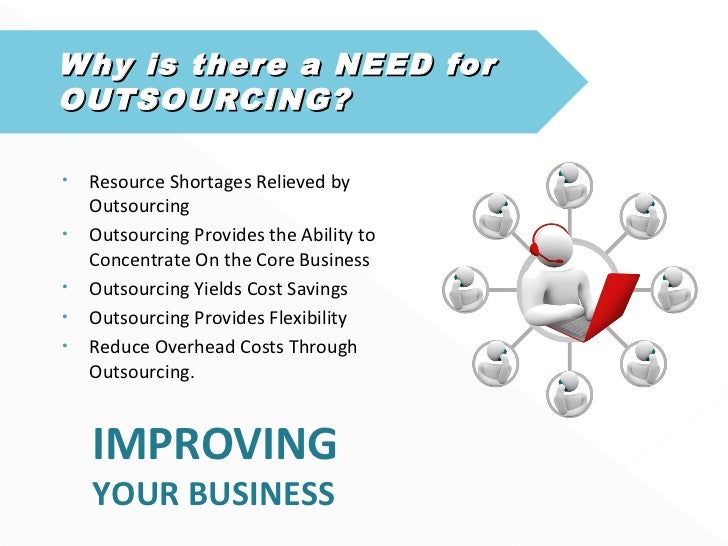Companies of all sizes can benefit from the use of a specialist outsourced provider
Smaller businesses that have faced a challenging environment in recent years due to heavier regulation and uncertain market conditions, have sought to gain a competitive advantage by outsourcing some of their in-house functions.
Traditionally seen as the preserve of bigger businesses, smaller companies and even start-ups have shown increased interest in using a third party specialist to outsource some of their core activities.
The findings are not surprising, however. There are numerous benefits for smaller companies – and, indeed, companies of all sizes – in outsourcing, including reducing costs and ensuring that back-office or non-core activities are looked after by suppliers who are specialists in that specific business area.
The Times study found that the reasons given by smaller companies for outsourcing were:
| Reason for outsourcing | No. of companies |
| Cost-cutting tool | 59% |
| Enables focus on core business | 57% |
| Solves capability issues | 47% |
| Enhances service quality | 31% |
| Critical to business needs | 28% |
| Access to intellectual capital | 28% |
| Manages business environment | 17% |
| Drives broader transformation change | 17% |
The most popular back-office functions to be considered for outsourcing include payroll services, human resources administration, invoicing, technology and fleet management and administration – although most in-house services can be readily outsourced.
Why should a company outsource?
The benefits of outsourcing for companies of all sizes can be substantial. There are potentially significant gains for any business, including the following:
- Redirection of internal overhead. Outsourcing can free up the business to focus on its core strengths, allowing staff to concentrate on their main tasks and on future strategy.
- Cost savings. Outsourcing can lower the overall cost of the service to the business. It can also give the business an edge when adapting to changing market conditions.
- Improve quality. Outsourcing can help achieve a step change in quality through contracting out the function, aligned to a new service level agreement.
- Knowledge. Outsourcing can provide access to the intellectual property, wider experience and greater specialist knowledge of the outsource partner.
- Contract. Services will be provided under a legally binding contract with financial penalties and legal redress, making it easier to police. This is not the case with internal services.
- Operational expertise. Outsourcing can provide access to operational best practice that would be too difficult or time consuming to develop in-house. The outsourcing company will be a specialist in the service the business asks them to carry out.
- Staffing issues. Access to a larger talent pool and a sustainable source of skills provided by the outsource company.
- Capacity management. An improved method of capacity management of services and technology, where the risk in providing the excess management capacity is borne by the supplier, not by the business.
- Risk management. One approach to risk management for some types of risks is to partner with an outsourcer who is better able to provide mitigation of the risk in question.
Why employ a specialist?
When outsourcing a business function, it is important to remember that, however experienced an inhouse department is, managing that particular function is a departure from the organisation’s core business. However, for a specialist provider it is their total and absolute focus.

Not only will they be up to date with the latest legal requirements and industry practices but they will be able to bring a range of technical skills and expertise that may be lacking in the host company.
This means that any changes in the market place, new developments or innovative ideas they may have can be used to gain an advantage and increase the benefits to the business.
In terms of the vehicle fleet, for example, as well as outsourcing the whole fleet, there are many fleet-related functions that can be successfully outsourced to a specialist provider.
These can include:
- Vehicle sourcing and purchasing
- Funding management
- Maintenance
- Fleet administration
- Fuel management
- Accident management
- Duty of care, including risk management and driver training
- Driver contact
- Vehicle disposal
Benefits of a fleet specialist
For most businesses, the only reason they have a fleet in the first place is to mobilise their workforce or reward their employees.
So, it so it should be the job of the fleet management specialist to ensure that staff are happy and comfortable, taken care of when they need help, and given the right tools to do their jobs.
Somebody within the organisation will still be needed to work with the chosen fleet management provider at a strategic level.
This will ensure that there is a match in terms of the personalities involved, that systems are employed which are easy to use and interrogate, and that meaningful, easily accessible management information is readily provided to help the business’s ability to make good decisions.
The new provider also needs to demonstrate transparency in everything they do. If you’re going to outsource a part of your business, you have to know you can completely trust that partner and work with them on a daily basis.
If you would like more details regarding the benefits of outsourcing the management of your fleet to a specialist provider, please get in touch.






